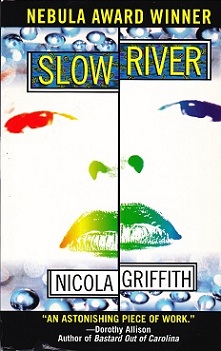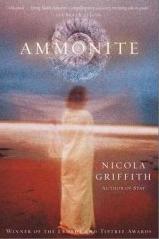
Slow River
Nicola Griffith
343 pages
published in 1995
Everybody knows about the Bechdel test now, don’t they? Introduced in Dykes to Watch out For, it’s a test to see if a given story meets a minimum feminist standard: a) does it have at least two women, who b) talk to each other about c) something else than a man? It’s a good way to think differently about the movies you see or the books you read, to see how common it is for a story to have only male characters, or only a token female character, sometimes as prize for the hero. Having a story with only male characters is normal, having one with all or majority female characters is the outlier, can get you shoved into a women only ghetto like romance or feminist literature.
This is true in science fiction as well as mainstream literature, which made reading Nicola Griffith’s Slow River so interesting. It’s her second novel, also the second of her’s I’ve read and like the first, the cast is almost exlusively female. But where that one was set on a planet where men had died off due to some handwaved plague, this one takes place in near-future English city that for once isn’t London. I’m not sure whether Nicola Griffith made this choice of cast deliberately, or it just happened naturally because of the story she wanted to tell, but it works.
